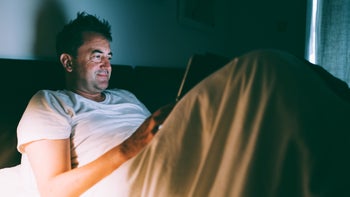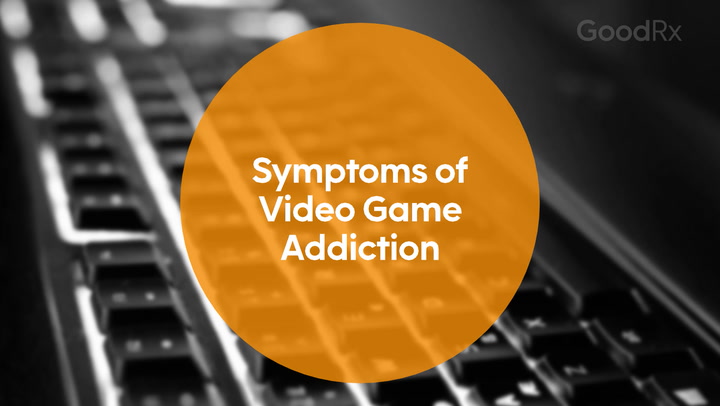
Social Media Addiction: Could Your Scrolling Habits Be a Problem?
Key takeaways:
Social media addiction occurs when your social media use causes problems in your life.
Addictive use of social media is linked to mental health issues like anxiety and depression.
If you think you might have a social media addiction, there are options for professional help and steps you can take on your own to cut back.

With an ever-increasing number of platforms, from Facebook to TikTok, social media plays a large role in many of our lives. But for some people, social media use may become problematic.
Experts believe that aspects of social media can be addictive. In fact, some researchers consider social media to be as addictive as gambling and shopping.
If your social media habits are getting in the way of your job, relationships, or other responsibilities, it might be time to seek help.
What is social media addiction?
Social media addiction is social media use that is difficult for you to control and affects your ability to function in your everyday life.
Social media addiction isn’t yet recognized as a clinical disorder. But many professionals and researchers agree that social media can be addictive for some people.
How do you know if you’re addicted to social media?
Signs that you may be addicted to social media include:
Spending a large amount of time on social media
Thinking about social media often when you’re not using it
Spending less time doing other activities or hobbies in order to use social media
Spending less time with others in order to use social media
Using social media to the point that it gets in the way of different areas of your life, like work, school, and relationships
Experiencing feelings like anxiety and irritability when you can’t access social media
Using social media as a way to cope with unwanted emotions
Why is social media addictive?
Like other types of addictive behaviors, using social media can be rewarding. That’s because it causes a release of dopamine in the brain. Dopamine is a chemical that plays a large role in the development of addiction. It is what causes people to repeat behaviors over and over again that are pleasurable.
Read more like this
Explore these related articles, suggested for readers like you.
Researchers also believe that other aspects of social media contribute to its addictive potential, such as the:
Ability to explore new identities: Social media allows people to “try on” new identities and share them with the world.
Desire to share photos and videos: Sharing photos and videos on sites like Instagram or TikTok can be gratifying.
“Fear of missing out,” or FOMO: People fear that other people are having positive experiences that they are not a part of.
“Nomophobia”: Experts believe that some people develop anxiety around not having their phones 24/7 (“nomophobia”). This condition has been linked to excessive internet and social media use.
How does social media affect the brain?
We know that social media triggers the release of dopamine in the brain, since it can be rewarding. But social media sites and apps are designed to keep users stuck in what experts call a dopamine “feedback loop.”
When you check your phone for notifications or new updates, it triggers anticipation. And if you get a positive reaction — such as more views or likes — dopamine is released in the brain. As a result, it’s hard to put down the phone.
How does compulsive checking of social media affect your mental health?
Compulsive social media checking can have a negative effect on your mental health. Researchers are still trying to understand the link between social media and mental health. But some theories have already been proposed.
One explanation is that people who spend long amounts of time on social media have less time for face-to-face interactions. Another explanation is that social media can cause pressure to fit in. This can be stressful and lead to poor mental health.
People who are addicted to social media may also have other mental health conditions like:
Anxiety
Depression
Attention deficit/hyperactivity disorder (ADHD)
However, we can’t say for sure yet that social media use causes mental health problems. It may be that people who already have mental health problems are more likely to excessively use social media.
In some cases, social media may actually have a positive effect on mental health. Some evidence suggests social media can help people connect online with peers who understand them. For example, young adults with a significant mental illness find that social media helps them feel less isolated.
How is social media addiction like other addictions, and how is it unique?
Social media is a behavioral addiction. Other types of behavioral addictions include gambling, shopping, and sex. It also shares some similarities to drug or alcohol use disorders.
Both social media and substances can be addictive. But the consequences people experience may be different. For example, people with substance use disorders often experience financial or legal problems. This is less likely with social media addiction.
Substance use disorders and social media addiction both can involve tolerance and withdrawal. Those with social media addiction can develop a tolerance, where they crave more social media time to feel as good. They can also experience withdrawal symptoms when they can’t go on social media, like irritability and anxiety.
How do you treat a social media addiction?
Therapy is often the best way to treat behavioral addictions like social media addiction. Because social media is relatively new, treatment options are still limited. More research is needed to discover ways to help people control their relationship with social media.
However, cognitive behavioral therapy (CBT) is used to treat internet addiction, and it can help treat social media addiction. CBT may be offered in an individual or group setting. The key parts of CBT include:
Understanding how your thoughts, feelings, and behaviors are related
Identifying and changing negative thoughts and beliefs that contribute to unwanted behaviors
Teaching coping skills to manage unwanted feelings
Therapists can adapt CBT to help meet the needs of people addicted to social media. For example, you might explore how you use social media to cope with your thoughts and feelings. By changing negative thoughts and learning to manage uncomfortable feelings, you may find it possible to reduce your social media use.
There are no medications approved to treat social media addiction. But medications may help address any underlying mental health conditions. Antidepressants, anti-anxiety medications, or other types of medications may be helpful.
You can also consider joining a support group that includes people with a social media addiction. Media Addicts Anonymous and Internet and Technology Addicts Anonymous welcome people who struggle with their social media use. These groups are based on the Alcoholics Anonymous model and are run by peer group leaders.
What are some ways you can cut down on screen time and social media use?
If you think that your social media use is causing problems in your life, consider the following tips for keeping your use in check:
Do a digital detox at least once per week where you stay off social media for at least 12 hours.
Try to cut back on how often you’re on social media by checking it only once or twice per day.
Keep your time spent on social media to a limit, like 10 minutes each time you log on.
Turn off notifications on your devices.
Download an app that helps you track and cut down your social media time.
Turn your phone off for meals and at least 1 hour before bed.
Start a new hobby to help keep your mind off social media.
The bottom line
Though social media addiction is not yet a clinical diagnosis, many people have unhealthy relationships with it. Signs that you’re addicted to social media include difficulty controlling your use and spending less time doing other activities.
If you’re concerned about your social media use, there are options for treatment. And you can take steps to develop a healthier relationship with it.
Why trust our experts?



For additional resources or to connect with mental health services in your area, call the NAMI HelpLine at 1-800-950-NAMI (6264).
References
Andreassen, C. S., et al. (2016). The relationship between addictive use of social media and video games and symptoms of psychiatric disorders: A large-scale cross-sectional study. Psychology of Addictive Behaviors.
Anuradha, M., et al. (2018). Efficacy of CBT on internet addiction. Journal of Psychosocial Research.
Bhattacharya, S., et al. (2019). Nomophobia: No mobile phone phobia. Journal of Family Medicine and Primary Care.
Burhan, R., et al. (2020). Neurotransmitter dopamine (DA) and its role in the development of social media addiction. Journal of Neurology and Neurophysiology.
Dalvi-Esfahani, M., et al. (2019). Social media addiction: Applying the DEMATEL approach. Telematics and Informatics.
Grant, J. E., et al. (2010). Introduction to behavioral addictions. American Journal of Drug and Alcohol Abuse.
InformedHealth.org. (2013). Cognitive behavioral therapy.
Internet and Technology Addicts Anonymous. (n.d.). Social media addiction.
Karim, F., et al. (2020). Social media use and its connection to mental health: A systematic review. Cureus.
Kuss, D. J., et al. (2017). Social networking sites and addiction: Ten lessons learned. International Journal of Environmental Research and Public Health.
Naslund, J. A., et al. (2020). Social media and mental health: Benefits, risks, and opportunities for research and practice. Journal of Technology in Behavioral Science.
Ricci, J. (2018). The growing case for social media addiction. California State University.
If you or someone you know struggles with addiction, help is available. Call SAMHSA’s National Helpline at 1-800-662-4357 to learn about resources in your area.





















